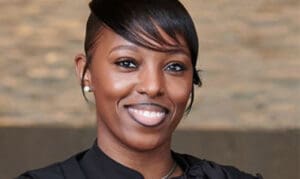Abortion is a critical moral issue in our time. Previous generations have had to overcome the evils of slavery and segregation. The culture of death with abortion as its centerpiece is an evil that must be exposed, resisted, and defeated. On Jan. 22, 1973, the United States Supreme Court found the right to abortion on demand in the Constitution. It was an appalling decision which has led to an average of 1.6 million abortions annually.
Abortion is the extraction or expulsion of the immature human fetus from the mother’s womb prior to natural birth. The pro-life movement has called attention to fundamental moral issues that are involved in the protection of innocent human life in the womb.
First, every human life is sacred. Its value is absolute. Secondly, the deliberate killing of an innocent human being is wrong. Thirdly, the fetus is a complete person possessing a soul from the moment of conception. Fourthly, the purpose of law is to protect human life. After all is said and done, abortion is about God.
God has made it very clear that the developing fetus is already human life (Jer. 1:4; Psa. 139:13-16; Ex. 21:22-24; Lk. 1:24; 2:1). The embryo is a human life and must be accorded the same rights as life outside the womb. It has been noted that “at eight weeks all the organs are present — brain functioning, heart pumping, liver making blood cells, kidney cleaning the fluids, fingerprints formed, etc. Yet almost all abortions happen later than this date.”
Fetal life is defenseless and will be vindicated by God (Psa. 10:17-18; 146:9; 68:5; Deut. 10:18; Amos 1:13; Prov. 6:16-18; Jas. 1:27). God was committed to the care and protection of the fatherless in Israel. He promised blessings upon those who shared His care for orphans. This responsibility has been committed to the church as well. In ancient Israel children who had no father were to be protected. The motherless were also objects of God’s compassion (Ezek. 16:4-6).
A nation that legitimizes, through its legal system, the destruction of innocent human life is in for hard times. God holds that nation responsible for its moral failure. Woe be to a nation that declares war on the defenseless (children in the womb, child abuse, pedophilia). The judgment of God fell upon Ammon for ripping open the pregnant women of Gilead in order to enlarge their borders (Amos 1:3). It has been said that “societies that have nothing sacred, especially not human life, die.”
The arguments that are used to justify the destruction of fetal life are morally and ethically flawed.
“A woman alone has the right to choose what is done to and in her body.” Other versions of this argument are articulated in terms of “reproductive freedom” or “a free society should not invade the privacy of a woman’s body.”
In response, let it be said that that so-called “freedom of choice” can never justify freedom to take innocent lives at will. What about the rights of others? What about the rights of the innocent fetus the mother has chosen to conceive? Who gives the unborn child a choice? Who is his or her advocate?
It was Lewis B. Smedes, the Christian ethicist, who said, “A free society does not allow people to follow their consciences if their consciences lead them to kill an innocent human being.”
“What right do the pro-lifers have to impose their particular view of morality on others? It is said that you can’t legislate morality in a pluralistic society.” The issue is really whose morality will be reflected in our law and public policy. John S. Feinberg and Paul D. Feinberg (“Ethics for a Brave New World”) effectively sully this popular argument by pointing out that “the issue … is not whether a morality should be imposed, but whether the one being imposed is the correct one. We are not embarrassed to impose a morality on society that requires us not to kill another human being on whim. Why, if abortion is wrong, should we be afraid to impose on society a ban against it?”
Answering the flimsy and morally vacuous arguments of the pro-abortion movement is not enough, however. There are measurable and meaningful things that we can do to challenge and correct the culture of death in which we live.
In the first place, we who are pro-life are to live in such a way as to be a purifying influence on the moral corruption in our society (Matt. 5:13-16; 1 Pet. 2:11-17). We are to take responsibility for our own lives to live God’s way (“abstain from fleshly lusts which wage war against the soul”). Our lives are to be placed on display for all to see the presence of God.
Love one another. Be kind. Show compassion. Keep ourselves morally pure. Don’t go to bed with your boyfriend/girlfriend. Tell the truth.
Secondly, we are to live in submission to divinely ordained cultural institutions (the state, one’s employer, family). This is to be done for the Lord’s sake. The world is suspicious of Christians. Our teaching unsettles the unbeliever. Any charges of treason (being un-American, anarchists, rebels, etc.) are best dispelled by godly living.
Thirdly, we are to identify, resist, and denounce the evils that exist in our fallen world (Eph. 5:11, “And do not participate in the unfruitful deeds of darkness, but instead expose them; for it is disgraceful even to speak of the things which are done by them in secret.”).
Pro-life Christians have a right and responsibility to speak out against the evils of our age. The evils of racism, adultery, pornography, illegal drugs, abortion, etc., must have the light of truth cast upon them. The moral evil of abortion on demand ought to be challenged by the persuasion of a greater power, namely changed attitudes and values.
Finally, we are to be a merciful community by providing assistance to those who are crying in the darkness. Love for God and others translated into good deeds can speak volumes to a watching world.
The unsaved can’t understand the language of truth but they can observe lives that practice the truth. Unwed mothers considering abortion need loving counsel and prayer. Saving unborn children is a cause with God’s stamp of approval.
Dr. Howard E. Dial, pastor
Berachah Bible Church
Fayetteville, Ga.











Leave a Comment
You must be logged in to post a comment.